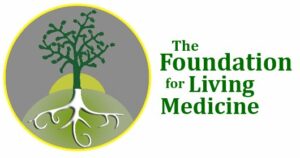In Chapter 1 of The Well-Lived Life Dr. Gladys discusses “finding our juice,” that is, finding the will within us to live and finding that purpose for which we were born. Many mothers, although not all, feel that sense of purpose when they become pregnant. Women have the unique privilege and responsibility of bringing forth new life on this planet, indeed, providing for the survival of the species. As Dr. Gladys would say to any person, particularly an expectant parent, “You matter.” In the grand puzzle of life, each person makes a difference, especially one who is sharing body, mind and spirit with an incoming Soul. This is a powerful reason to be on the planet.
Let us remember that pregnancy is not a disease, nor should it even be considered a health challenge. The medical complex looks for what’s wrong. It warns awaiting parents about what can go wrong. They label a pregnant woman a “patient” so that she begins to think of herself needing medical assistance. When she goes to a hospital to deliver her baby she is often greeted with a wheelchair and wheeled like any other patient to a ward where her baby is to be born. If, upon examination, she is less than five centimeters dilated, or her labor has slowed due to her apprehension about what is occurring, she is told her labor is not progressing at the desired rate—and the term “failure to progress” is applied. Experiencing some anxiety, which would cause labor to stop or slow down, is normal. When someone enters a hospital or doctor’s office their blood pressure can elevate and they can experience anxiety. This stress is so well known that is even has a label—white coat syndrome. Yet this common normal response can precipitate the infamous cascade of interventions for laboring women.
We can help parents, especially those contemplating pregnancy, find their juice and “connect with desire,” the desire to give birth easily, in communication with their unborn babies as they work together to have the best birth possible. We can stop using delivery language and start honoring both parents and babies by using the word birth as a verb. Mothers birth or give birth, and babies are born. To say that babies are delivered is as impersonal as saying the mail or pizza is delivered!
To clarify: when parents want to have an easy pregnancy and birth we can encourage them to envision it all happening in perfect order. To want something commands the subconscious mind to perpetually want—to crave an object or outcome. This is like putting a carrot on a stick in front of a donkey pulling a cart. The metaphor here is that the subconscious mind is like that donkey. The carrot suspended in front—held in the front of our minds—becomes the goal because the subconscious mind is very literal. It will make wanting the objective so achieving the goal becomes a remote possibility while the longing remains paramount.
As Dr. Gladys says: “connect with desire.” Envision the perfect outcome and stop worrying—another devastating word in our vocabularies. When we worry we focus our thoughts, feelings, and creative juice on what we don’t desire. When that result shows up in our lives, we get to be right! We can then say, “See, I told you so!” But it was just the result of where we placed all our attention and intention. Why on earth would we be surprised?
In the Gladys McGarey Loving Birth Center mothers will not be called mothers-to-be since they are mothers from the moment conception took place within them. Their hormones begin to change immediately to support that new life even before a mother might consciously know that she is pregnant. Indeed, the body knows even if the mind has not recognized the miracle taking place in the body.
Prospective parents can be heartened to envision the joy at bringing in a new Soul. They could draw a picture of what birthing might be like in a birthing center, a tub filled with warm water at home, or even in a hospital. They can write a few positive words on a sticky note that can placed on the bathroom mirror or kitchen refrigerator where they will see the words often. An affirmation might be: “I (or we) give birth easily to a healthy, happy baby.”
